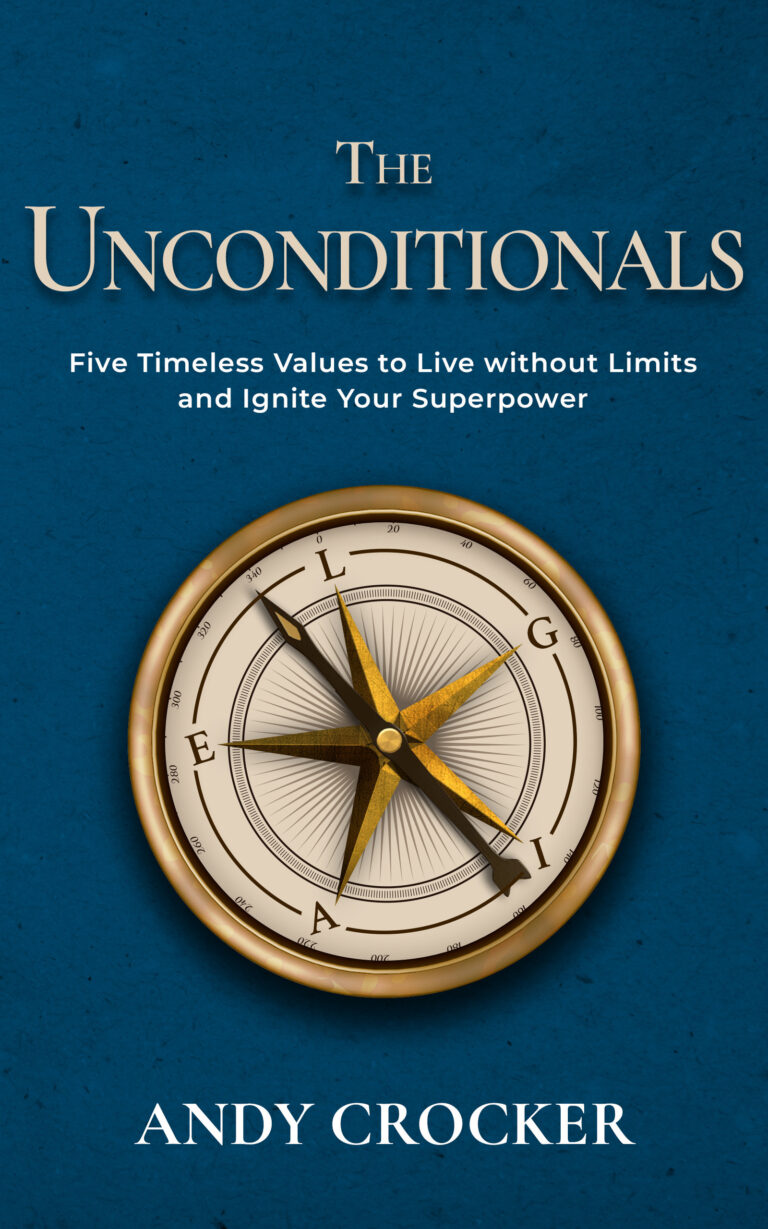As an aerospace engineer, Andy Crocker has competed at the highest levels of professional achievement—including for billions against Musk’s SpaceX and Bezos’s Blue Origin. In THE UNCONDITIONALS, however, he organizes his own beliefs on how to “pursue personal success, well-being, and fulfillment” as a partner, a parent, a leader, and fundamentally, as a conscious human being.
With an engineer’s eye for organization, THE UNCONDITIONALS sets a strong foundation with a clear pedagogical structure. The text discusses five ideas that must be lived unconditionally (Love, Gratitude, Integrity, Accountability, Endeavor), and each section has the same subsections to guide the reader through (What It Is, Why It Matters, Where We Go Wrong, Answers in Timeless Wisdom, and How to Live It, with a summary at the end). This makes the overall text very easy to absorb, and, although it isn’t explicitly suggested, it also makes it possible to work through in a modular (rather than linear) fashion.
The text’s next great strength is, in effect, its awareness: this is a book by and for people who are familiar with the self-help, pop-philosophy genre, and it isn’t afraid to critique that genre or point out its own shortcomings. Very early on, THE UNCONDITIONALS acknowledges that this genre is flimsy, bordering at times on predatory: “Most authors’ claims are accepted because they’re based on cognitive biases for which we’re all prone to fall.” This work goes out of its way to offer a broad basis of support for its ideas—pulling in scripture from all three Abrahamic religions while touching on Buddhism and Confucianism, as well as drawing on both real-world cases and relevant scientific studies (especially neuroscience)—all while peppering the text with quotations from other secular thinkers. This gives almost any (modern, American, Anglophone) reader something to grab hold of.
THE UNCONDITIONALS is very settled in this (modern, American, Anglophone) perspective, and although that works for its imagined audience, it does lead to some myopic decisions. There’s discussion of “Ancient Wisdom,” but the underlying values are extremely modern. Of the five central virtues, “Endeavor” feels entirely like a response to 20th-century American industry; and discussions of qualities like “originality” and “individuality” are entirely modern—directly at odds with the views of some of the older thinkers cited. The spectrum of thinkers is also limited by this perspective. The central idea of “unconditional” virtues retreads ground well-worked by Immanuel Kant, but Kant’s duty-based ethics are minimally discussed; a section on “authenticity” entirely misses Jean-Paul Sartre and his work on bad faith. Meanwhile, celebrity antisemite and Nazi supporter Henry Ford receives several paragraphs of biography, frequent callbacks, and a series of accolades he almost certainly doesn’t deserve (it’s unclear that the Ford assembly line did anything that wasn’t already done in the Venetian Arsenal four hundred years earlier).
Overall, however, these flaws don’t detract from a thoughtful, broad, well-structured, and eminently readable guide to a (or at least a type of) good life.
Aside from the deep particulars of its content, Andy Crocker’s THE UNCONDITIONALS succeeds on a strong pedagogical structure and a clearly envisioned audience.
~Dan Accardi for IndieReader


